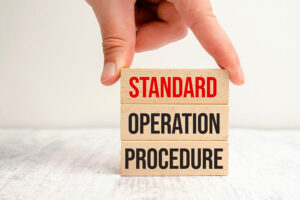B2B IT companies face constant pressure to deliver software and hardware services to their clients without interruptions or mistakes. And while their solutions might be excellent, if the support and continuity of service aren’t, their clients will often go elsewhere.
To help mitigate the risks while boosting the appeal of your business, let’s look at five growth tactics you might employ in a B2B environment.
Improving Customer Service with PSA Software
For B2B IT companies, improving customer service means improving the help desk. Resolving help desk tickets efficiently and effectively is key to improving customer service. When tickets take too long to resolve or IT companies don’t have the integrated tools to gain a comprehensive view of the issue, help desk customer service will suffer as a result.
Adopting professional service automation (PSA) software is something modern IT companies are doing to solve help desk issues. PSA software streamlines help desk processes by automating the tracking and management of tickets while integrating them with billing, project management, and reporting tools.
PSA solutions are integral for B2B IT companies to grow, as automation and cloud technologies rapidly transform modern businesses. While applications will differ depending on the type of IT company involved, quality PSA software makes it possible for IT companies to serve more clients in less time with increased visibility and functionality.
Leveraging Automation Tools
While having automation tools for different business processes is helpful, IT companies will benefit when their disparate tools have integrated functionality. Adopting PSA, CRM, ERP, and marketing automation tools with robust integration capabilities will help IT companies streamline business process and increase productivity.
For instance, help desk ticket data can be tracked and managed by PSA software, then shared to CRM software to improve future client dealings; or PSA reporting and analytics can integrate with marketing automation tools to refine campaigns with deeper insights.
Essentially, B2B IT companies can leverage their automation tools by integrating their functionality and learning their comprehensive capabilities. This may take updating or replacing existing systems with solutions that have more integration capabilities or that are more comprehensive in scope.
Outsourcing IT Monitoring, Remediation and Security
Replacing or augmenting internal IT teams by outsourcing monitoring, remediation, and security of IT systems is an effective way for B2B IT companies to achieve business growth. Ensuring continuity of services for B2B clients is of utmost importance for IT companies; partnering with an MSP will help IT companies deliver their services with more confidence.
Outsourcing monitoring, remediation, and security of IT systems bring benefits such as:
- reduced IT labour costs
- enhanced visibility with IT security
- timely remediation of IT issues
- more system uptime
- increased time and productivity
- reduced cybersecurity risk
- enhanced marketability
- access to expanded IT expertise
Essentially, by outsourcing IT support to a quality MSP service, B2B IT companies will have more time and money to focus on business growth, while gaining confidence in their ability to deliver continuous service to their clients. They’ll also gain a strategic IT partner who can help them select fitting solutions and optimally integrate and leverage existing ones.
Service-Defined Marketing Approach
Another growth tactic for B2B IT companies is to refine their marketing approach to be service defined. B2B IT companies that can describe and define their solutions with the most clarity will have an advantage over their vague competition.
A service defined marketing approach simply means reaching out to prospective B2B clients with tactics that help explain the exact service being provided. With so many similar, yet different, software solutions to choose from, businesses are having a difficult time understanding which one is right for their needs.
IT companies that clearly explain what their product/service does and how it works with other common industry solutions will have an advantage over those that don’t. For example, do prospective B2B clients need both an ERP and a PSA solution? Does a CRM solution have marketing automation capabilities?
Confusion with product/service capabilities is due to the rapid advances in online technology; software capabilities are merging and consolidating into holistic solutions, yet understanding the extent of these capabilities isn’t always so clear. Prospective B2B clients may baulk at adopting certain solutions because of an ineffective marketing approach that doesn’t define the service apart from other similar services.
Basically, not all software solutions are the same, yet understanding the differences isn’t always so easy for prospective B2B clients. IT companies that can clearly define their services and products apart from similar products will provide the clarity clients need to make a confident decision – and be content with it long-term.
Developing and Executing an Effective IT Strategy
Rapid advances in online technology will continue to challenge IT companies to innovate and adapt to future developments in the IT realm. Agile thinking is needed in the development and execution of effective IT strategies for B2B companies.
An article on CIO called: “Anatomy of an IT strategic plan in the era of digital disruptions“, written on Oct. 17th by Stephanie Overby, explains:
“IT’s role in the development and execution of business strategy has grown significantly in the era of digital transformation.
…Developing and executing a business-aligned IT roadmap is more important than ever.
…The best IT plan is no longer simply a rundown of the financial investment required or a list of technologies to implement. Rather, it is an assessment of the changes demanded to achieve business goals.”
IT companies that can develop and execute effective IT strategies will remain agile in an ever-changing technological environment, thus, giving them the ability to adapt and transition with ever-changing best practices and B2B client needs.
Conclusion
Not surprisingly, business growth for IT companies will depend on their effective utilization of online technology, both for themselves and their B2B clients. Adopting PSA solutions to streamline customer service and ticket management, leveraging holistic automation tools, outsourcing vital IT support, defining services clearly with marketing campaigns, and developing and executing an effective IT strategy, are all effective tactics that will help B2B IT companies achieve business growth.
To learn how ServiceTree’s fully integrated PSA solution can help you, go here.





